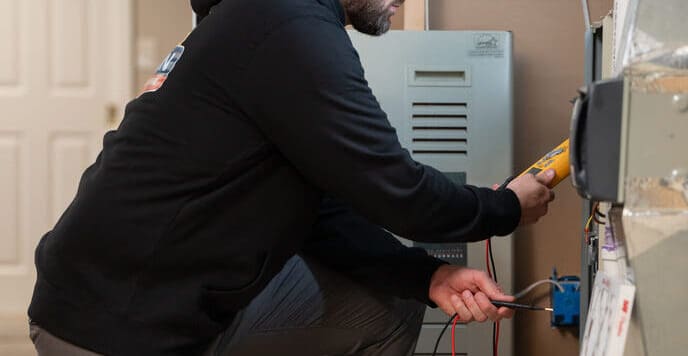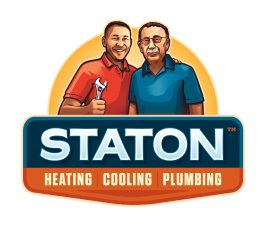0% APR Plus No Payments for 12 Months
on Select New Plumbing & HVAC SystemsBoilers
Staton is a Navien Certified Dealer and Installer for Boilers
With the sometimes harsh winters of Maryland, it is important to have a reliable and well maintained residential boiler. For quality boiler repair, maintenance, replacement, and installation look no further than Staton. Contact us today for more information on all of your boiler needs.
Reach Out to Staton Today!

A boiler system heats the water inside a tank that supplies either hot water or steam, which flows through pipes and radiators to produce warmth. Most residential boiler systems are hot water heating systems. Some older homes and larger homes may have steam heating systems. Both steam and hot water heating systems are excellent for keeping your home warm during the cold winter months. A boiler normally sits on top of a burner where fuel is burned to produce heat. The most common fuel for boilers in the Annapolis, Maryland area is natural gas, which is usually piped into the house from a pipeline that runs under the streets or road. In rural areas, not served by natural gas lines, the most common fuel used is propane gas, which is kept in a large tank in the yard of the house. Propane is usually more expensive than natural gas. It costs about the same to operate a boiler as it does to run a forced-air system, but forced-air systems are usually less expensive to install.
Evaluating Types of Boiler Systems
There are two main types of boiler systems: Steam boilers and Hot water boilers. A steam boiler system heats water to create steam, which is pumped throughout the house’s radiators, whereas a hot water boiler system heats water and pumps it through radiators or baseboards in the house. In many cases, this will also heat water used for other purposes in the home, such as bathing and cooking, eliminating the need for a separate hot water tank. When considering a boiler system to purchase, you’ll want to consider the system’s operating efficiency. How efficient your new system is will determine the percentage of fuel that is used to create heat. Energy Star is a certification from the federal government that a boiler has an energy efficiency rating of over 85
High-Efficiency vs Standard Efficiency Boilers
If your unit is over ten years old, you’ll probably save money by installing a new system. However, it can be confusing to know what type of boiler is best for your home.What Makes a Boiler High-Efficiency? The way a boiler works is by heating water, which is conducted through radiators, radiant floor systems or a coil. With a standard boiler, some energy that is used to heat the boiler, whether it is fossil fuel or natural gas, is lost in the process of conducting. A high-efficiency boiler is designed to trap the escaping heat and direct it back into heating the home.
Why is High-Efficiency Important?
Low-efficiency means that fuel is wasted. Boilers over ten years old only have efficiency ratings between 50-70%. That means they use 50 to 70% of the fuel to heat the house, and the remaining 30-50% of the fuel goes to waste. The most significant thing you can do to reduce your home’s impact on the environment is to have an efficient heating system.
10% OFF
Up to $100 off
Get in Touch With Our Team
REAL REVIEWS FROM REAL CLIENTS
4.9 Google Rating














